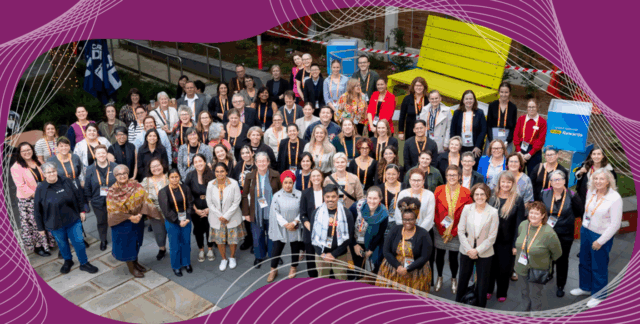The University of Technology Sydney has earned their first two SAGE Cygnet Awards for their work improving the career pipeline for women and girls in Engineering and IT.
The first Cygnet Award recognises their efforts to attract girls and women to engineering and IT studies. The core of this work is the UTS Women in Engineering and IT (WiEIT) STEM x Outreach program – an initiative aimed at inspiring young women to consider a career in engineering and IT.
The other applauds UTS actions focussed on opportunities for early career researchers in the Faculty of Engineering and IT, supporting career progression for Higher Degree Research (HDR) women candidates.
Professor Andrew Parfitt, UTS Vice-Chancellor and President, says UTS is delighted to receive two Cygnet Awards, which demonstrate the university’s long-term commitment to improving gender equity in STEMM.
“Our outreach programs are increasing interest among girls and young women and providing them with confidence to pursue careers in STEMM. Through greater support for women completing higher research degrees, we can empower them to reach their full potential,” he says.
SAGE CEO Dr. Janin Bredehoeft, echoed the Vice-Chancellor’s sentiments.
“These two Awards recognise UTS’s impressive efforts to improve the career pipeline for women and girls to work in engineering and IT. Whether it’s at school or even as an early career researcher, there should be fewer gendered hurdles to progress, and UTS has been working to dismantle them. My congratulations go to everyone involved in this important work,” says Janin.
The WiEIT STEM x Outreach program currently runs in 30–35 schools across NSW and is financially supported by Cognizant Australia. It sets out to address all six barriers by providing meaningful experiences for girls, teachers and families to engage with engineering and IT.
The two key arms of the program – which has been running since 2019 – are STEM x Play, aimed at Year 5 and 6 students, and STEM x Impact, aimed at early high school students.
WEIT Program Outreach Coordinator Marco Angelini says girls and young women are often discouraged or steered away from pursuing a career in engineering or IT.
‘The best part of our project is that we’re able to engage with families, teachers, career professionals and whole school communities over time, which allows us to address culture change and the messages that are out there in a long-term way,’ says Marco.
For Arielle, a 14-year-old student who participated, the program wasn’t just beneficial for learning new skills, but also because it gave her access to new and exciting tools.
‘My favourite part of the program was learning how to use technologies that our school doesn’t have. We have had robots, drones, robotic arms and Arduinos that have been borrowed from UTS,’ says Arielle.
For student Maddie, the program also helped her to learn about the design thinking process, including how to empathise and define the problem, ideate, prototype and test a solution, and to see how her work could positively impact society.
Both girls are currently taking STEM electives and are involved in the school’s Girls STEM Club.



